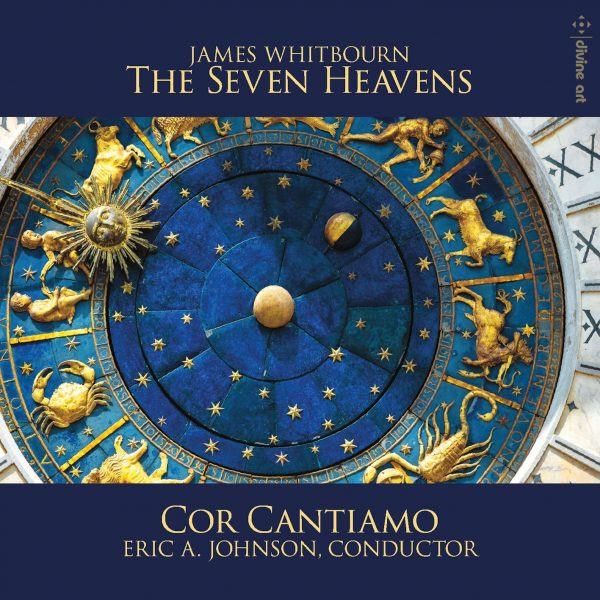The Chronicle Review Corner
Trying to condense a review of this into a few words is like trying fit a bear into a handbag: it will eventually go in, but a lot will be missing.
This is a big programme of music to take in, the works themselves ambitious, with a big sound and big ideas, and a number of performers, though not as many as it was originally written for.
It’s all approachable, the sound somewhere between old, classical Anglican style and something more modern, though it’s pretty traditional; nothing too modern to frighten the horses, or the vicar anyway.
Mr Whitbourn (his CV is too impressive just to call him Whitbourn as per our normal style) has worked for television so is used writing music that needs to be both quickly absorbed and emotional or even inspiring.
The sleeve notes (which are free to download) explain all but the title piece is a musical portrait of CS Lewis portrayed in the imagery of the mediaeval planets. It was initially written for a big setting and occasion — Ulster Hall and the 140th anniversary of the Belfast Philharmonic choir — but was downscaled for the Cor Cantiamo on this performance to a chamber ensemble, seven instruments.
The planets include the moon with its “diffusing silver light”, “unconquered, boisterous” Mars, Mercury the “celestial messenger, of various skill” (the latter tied in with Lewis’s Christian conversion at the encouragement of JRR Tolkien, who back then was just an academic and not an entire universe).
After the grandeur, Mr Whitbourn gives us some light relief with Ada, she being Ada Lovelace, the only legitimate child of the poet Lord Byron and the first computer programmer. Ada is recalled as a “the little bird” in a rising motif that uses sequences of musical pitches derived from the letters of her birth name, the sequence played 36 times, one for each year of her life. The music is a little sad: Lord Byron buggered off when Ada was only four months old but, at her request, she was buried next to her father.
Elsewhere, The Voices Stilled is a moving and powerful setting of the Agnus Dei from the Missa de profundis, commissioned for the Shipley Arts Festival and dedicated to those who lost their lives in war. Eternal Rest was commissioned by the BBC to be used in its broadcast coverage of the funeral of the queen mother. This is both sombre and broadcast-friendly; in the right conditions it will either calm or raise the hairs on the listener’s neck. It’s good played loud. It’s possibly the most traditionally “churchy” piece of music on here, for obvious reasons.
The title piece aside, we liked best the final pieces on the CD, The Canticles of Mary and Simeon. Asked to write to a new setting of the 1662 Book of Common Prayer evening canticles, the composer looked at the bible: both characters were devout Jews, so he combines an Anglican feel with Jewish melody on a viola, which adds a pleasingly ancient feel to the rather powerful music. This is countered by the organ, which balances the Eastern with a very English/Western sound. The album will please singers, as well as those who love the sound of a good choir. It also sounds (and saying this, we have zero expertise to base the comment on) as if it could be performed in a local town hall by a decent amateur choir.
@divineartrecordingsgroup
A First Inversion Company
Registered Office:
176-178 Pontefract Road, Cudworth, Barnsley S72 8BE
+44 1226 596703
Fort Worth, TX 76110
+1.682.233.4978












